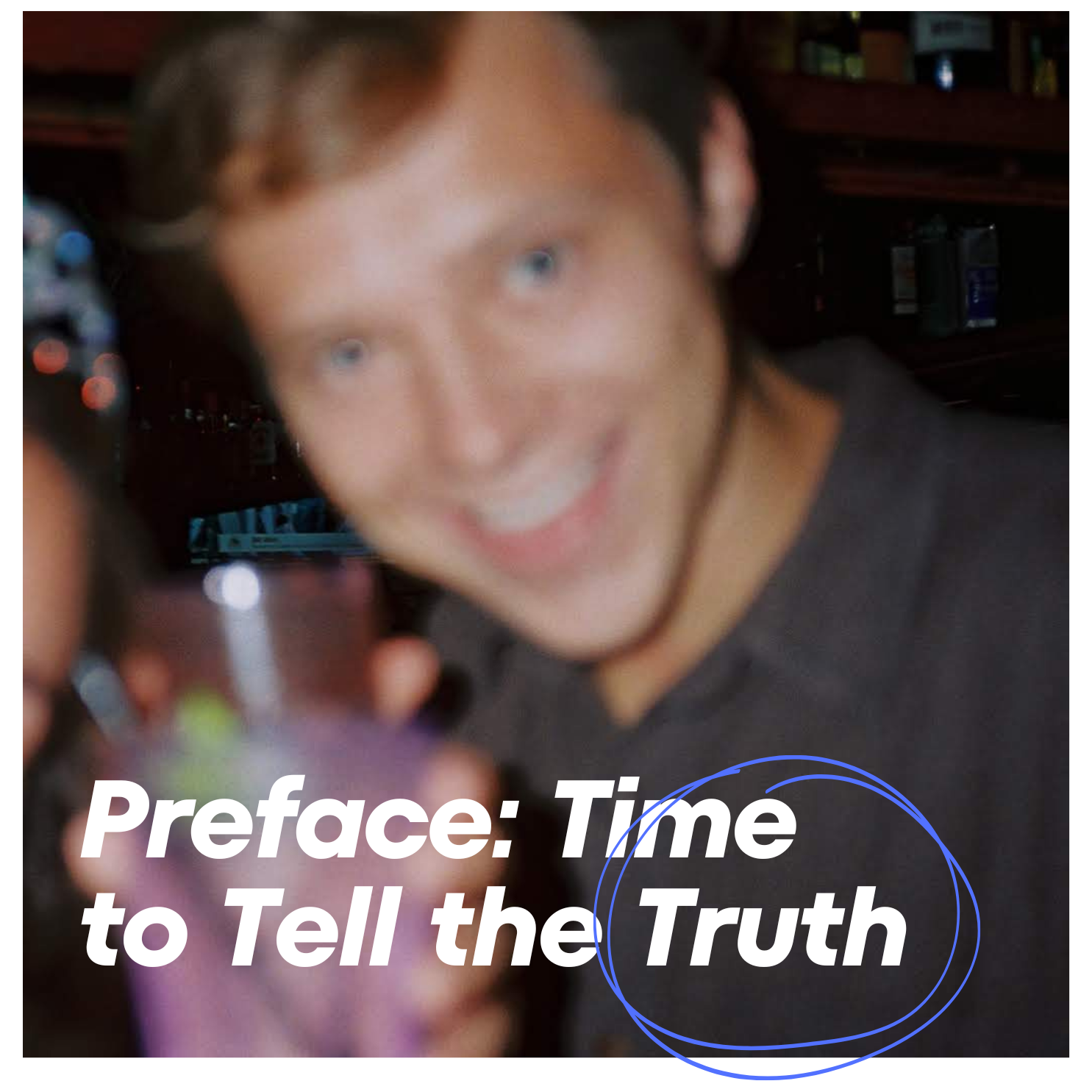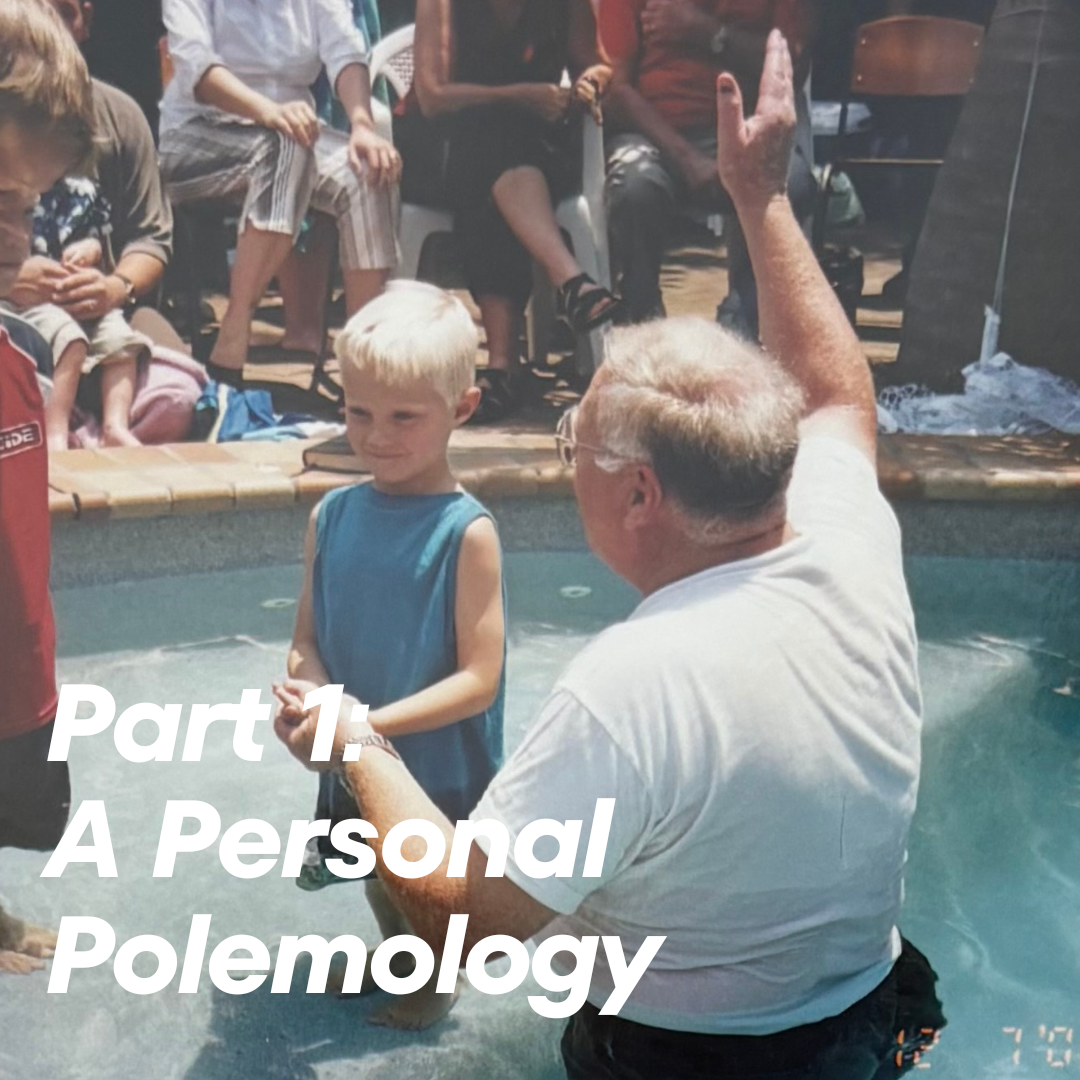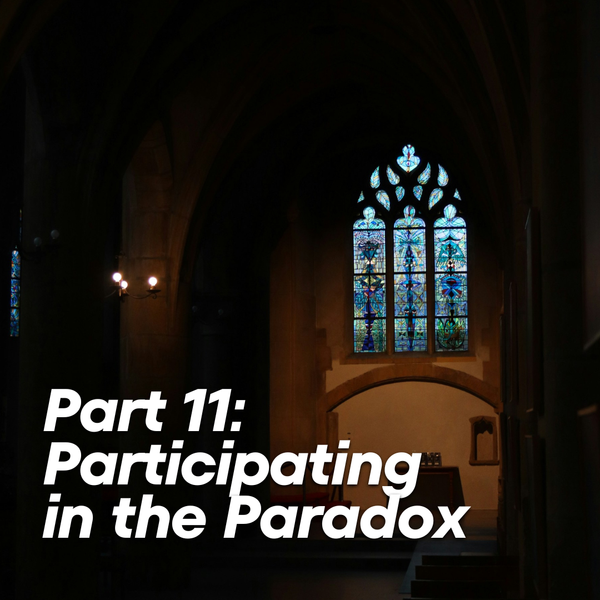Preface: Time to Tell the Truth

There is no greater agony than bearing an untold story inside you.
― Maya Angelou
And yet, it occurs to me now that we can never run with our lies indefinitely. Sooner or later we are forced to confront their darkness. We can choose the when, not the if. And the longer we wait, the more painful and uncertain it will be.
— Tomasz Jedrowski
(February 2024)
In the middle of a bleak winter and a raging global pandemic, I sold most of my belongings, packed up what remained into a suitcase, and moved to a foreign country I had never properly visited before - all for a master's degree in Theology and Religious studies.
And, in light of the third anniversary of this momentous journey, I feel compelled to make a confession:
That’s a lie.
I didn’t move for a master’s degree.
It was never about the “leverage it gave me professionally,” the “academic career it opened up to me,” the two little letters it tacked onto the end of my name on my curriculum vitae, and least of all, about the “I’m delighted to announce” post on LinkedIn.
Sure - those things are well and good or whatever - but it was never once about them.
Nor was it for some kind of romantic notion of “life in Europe” where I could throw caution to the wind, escape reality, and curate a nice Instagram feed.
No, I didn't move to get a master’s degree, nor did I move for the aesthetics.
So, what did I move for?
It’s simple, really: I moved for the sake of conflict resolution.
In the years leading up to my move, a silent war had waged on within me, and I was nearing a breaking point. The more I resisted it, the more it seemed to undermine my mental and physical health. And I had this nauseating awareness that it would neither go away on its own nor would anyone else be able to resolve it for me.
The source of my inner conflict?
I’m queer.
As it does for many, its concealment came at a tremendous cost: slowly corroding my psychological and spiritual well-being as it riddled me with uncertainty, fear, and self-contempt, seemingly threatening not only my future but also my beloved Christian faith.
I debated for a very long time whether or not to undertake this project of writing and sharing my story publicly, as I was doubtful about my capacity to contribute anything that hadn’t already been contributed to this conversation.
But I’m confident that what follows is, in principle, not a story about queerness or faith per se - but actually something much more universal, something much more related to my being human than to anything else.
For this reason, the story I hope to tell has less to do with me and more to do with all of us — and it’s for that reason I hope you’ll continue reading.
It was 2019 when I finally acknowledged, whether I wanted to or not, that something had to change.
In January of that year, I returned to Southern California to complete the final semester of my bachelor’s degree at Biola University after having spent the previous nine months living in Germany as a Christian missionary.
I moved into a two-bedroom apartment in Buena Park with one of my best friends, Aaron, and three other men. (Yes, you read that correctly. There were five men living in a small two-bedroom apartment.)

The unusual nature of our apartment didn’t stop there... After a few embarrassingly short-lived and failed attempts to find a bunk bed frame, Aaron and I eventually gave up and ended up sleeping on mattresses on the floor for the remainder of our time there. Adding to the apartment’s odd charm was our second-floor balcony, which had more than started to collapse off the side of the building, not to mention a champagne cork that went rogue and was lodged halfway through the plastic light fixture in our kitchen that we, in some kind of commemorative attitude, never dislodged.
And it was the best of times.
I got a job at a little specialty coffee place where I learned to properly extract coffee (whatever that means), how to curate a crowd-pleasing cafe playlist, and how to make half-decent latte art. My coworkers quickly became friends as it seemed it was only when our laughter and fraternizing were interrupted by the bothersome realization that we had run out of pesto for our popular paninis or accidentally spilled a gallon of milk that we remembered we were, in fact, at work.

When I wasn’t studying or working, I spent time with friends, usually getting sunburned at the beach while alternating between reading and swimming. If we weren’t at the beach, however, you may have found us getting pruned in our apartment complex’s small and perpetually eucalyptus-leaf-littered hot tub or having ABC’s The Bachelor viewing nights with as much cheap wine and cheese as there were cheap hot takes on the personalities and bizarre behaviors of reality TV participants.

From the outside, everything was great.
I was preparing to graduate with my bachelor’s degree in Christian Ministries from Biola University, and the next step into vocational Christian ministry never seemed clearer.
I had years worth of countless hours of ministry volunteering under my belt, completed numerous internships at local churches, and spent most of the previous year living abroad as an iterate youth pastor in two small German towns.
Things are not always what they seem, however.
Under the surface of my otherwise smiley and put-together existence, a full-on insurgency was taking place.
I was at war with myself.
Still deeply closeted, my lonely sense of shame and self-contempt ate away at me in private isolation.
To me, my queerness threatened to jeopardize everything I was so afraid to lose: my faith, my relationship with God, my family and friends, not to mention my career and future.
Most of all, I think I feared that my faith and my sexuality were simply unreconcilable, and in a certain sense, I felt I had an impossible choice to make: either my salvation or my sanity.
Until then, I had coped with this growing conflict by abjectly running from myself, but deep down, I sensed I was nearing a breaking point and that some kind of reckoning was inevitable.
I knew I couldn’t outrun my lies much longer.
And this awareness haunted me.
And so graduation came, and it was me and my profound dissonance that walked across that stage to retrieve my diploma, and with it, contrary to that of my peers in the class of 2019, the future felt more ominous than optimistic.

I remember hearing in a marriage and relationship course in college that “conflict unaddressed festers.” Even small or manageable conflicts can grow into something much worse when avoided to keep the peace. My professor anecdotally shared that when he and his wife are tempted to avoid an ongoing issue, one of them will say, “If we don’t find a resolution to this now, the next 60+ years together will be long and difficult.”
Puts things into perspective a bit.
I realized the same could be said for myself and my inner conflict. After all, I am the only person I am guaranteed to be with for the rest of my life—I might as well try to like myself or, at a minimum, get along with myself. Already deeply troubled, I understood that avoiding my inner conflict likely only guaranteed that the next 60+ years of my life would be nothing but “long and difficult.”
I needed to resolve this conflict, and no one else could do it for me. My life and future were at stake—I had to take full responsibility.
So no, moving to the Netherlands wasn’t for a master’s degree. It was me initiating the dreaded “Hey, I think we need to talk” conversation—but with myself. This was the scariest and most challenging thing I’ve ever done. But now, over three years later, I can confidently say it has also been the most rewarding.
In light of this anniversary I somehow feel it is time for the truth to be told.
And this blog then is the start of a new truth-telling practice.
It’s a place for me to share not only a bit about my journey and the things I’ve learned along the way, but also about what I’m still learning (and unlearning), the challenges I’m still facing, and the future I am hoping to build and contribute to.
So subscribe if you’re interested! I’m really glad you’re here.
Tim
Song for this Post:
If you are finding this story insightful, engaging, or helpful, consider sharing it:
Read the next part:







